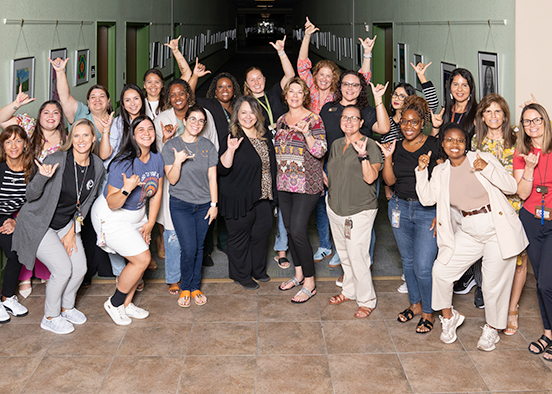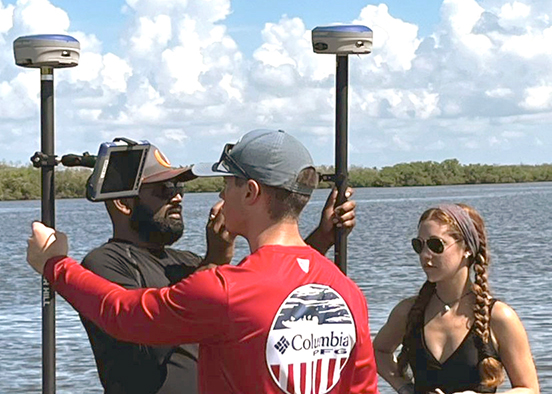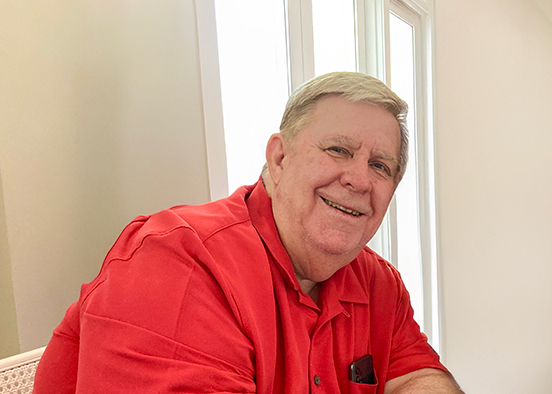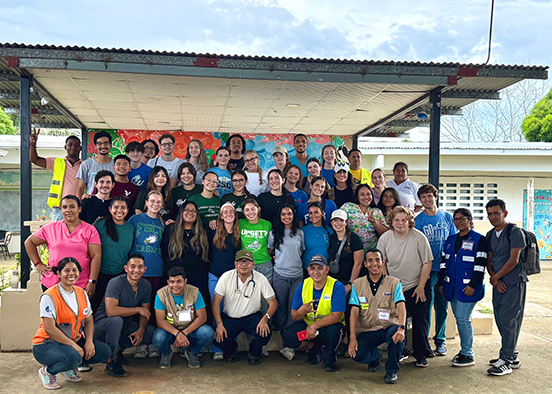FGCU grads stepping up amid school counselor shortages
The American School Counselor Association recommends a ratio of 250 students per school counselor. In Florida, the average ratio was 432 students to one school counselor in 2023-24 — and in some districts it was even higher, according to the association.
Lori Brooks is one of the Florida Gulf Coast University alumni stepping up to bridge this gap in school resources. She is a longtime educator and mental health advocate whose journey from classroom teacher to mental health leader reflects today’s challenges.
“We have schools with 1,000 students and only one school counselor,” said Brooks, director of school counseling and mental health services for the School District of Lee County. “And school counselors are also managing student scheduling, academic advising, college applications and crisis support. It’s not sustainable.”
The widespread school counselor shortage means students may not get timely help with academic planning or social-emotional development and critical mental health support.
The stakes are high. Over 40% of high schoolers report persistent feelings of sadness or hopelessness, according to the Centers for Disease Control. This underscores the critical need for early mental health intervention in schools.


FGCU prepares next generation of counselors
FGCU is combating the school counselor shortage by preparing students to serve on the front lines of student wellness.
The College of Education’s master’s degree in school counseling has doubled its number of graduates since launching in 1997. The program has embraced bold, student-centered innovation to equip graduates for real-world for success by combining classroom instruction, practical experience and mentorship.
In only a few years, the program has shifted to a complete virtual, synchronous format, making it accessible to aspiring school counselors across the state. It also has streamlined coursework from three years to two years, allowing skilled professionals to enter the workforce more quickly to meet the urgent need.
The department faculty is proud to lead the way in expanding opportunities, boosting the pipeline and ensuring every Florida student has access to the support they deserve.
“The need is urgent,” said Ann Tilman, an FGCU assistant professor of school counseling.
“We’re not only training students to become school counselors. We’re preparing them to be leaders, advocates and mental health responders.”
Students gain practical experience through fieldwork and internships. This helps them understand how to support young people academically and emotionally. There is also a special focus on trauma-informed practices.

“We emphasize data-driven decision-making and systemic thinking,” said Russell Sabella, program coordinator and professor in the Department of Leadership, Counseling and Human Development. “Our students graduate with the ability to create meaningful change, even amid staffing shortages.”
Answering the call of school counseling
Brooks began teaching in Lee County Schools after completing her education degree at the University of Central Florida in 1992. She found her passion in mental health after earning her master’s in school counseling from FGCU in 2004.
“I loved the practical side of the FGCU program,” she said. “We weren’t just sitting in classrooms. We were out there, learning how to listen, connect and support students. It helped me understand both the emotional and strategic parts of this work.”
FGCU’s foundation propelled her into leadership roles within Lee County schools. Now, she oversees school-based mental health initiatives for the entire district.

“Our goal isn’t to diagnose students. It’s to hear them. Support them. Provide early interventions that help before things escalate,” Brooks said. “We work with parents, pediatricians and school teams to make sure we’re supporting the whole child.”
Brooks also encourages students to understand their own thinking patterns. This approach is rooted in cognitive behavioral therapy techniques.
“We talk with students about ‘stinking thinking’ or ask them, ‘What’s in your thought bubble?’ or ‘What’s the story you’re telling yourself?’ If we can help students identify and challenge those thoughts early, we can make a big difference in their resiliency and well-being.”
‘Showing up for kids when they need us most’
Brooks misses classroom time, she said, but her administrative role allows her to make a broader impact as an advocate.

“I have the opportunity to work with school counselors and other mental health professionals that are highly skilled and knowledgeable. They’re doing this work every single day, and it matters,” she said. “I started (out) thinking I’d work in one high school for 30 years. Now, I’m helping design mental health systems for an entire district.”
Brooks believes school counseling is a powerful calling. She urges those considering the field to take the leap.
“The skills you learn make you a better human,” she said. “You learn how to connect with others, listen, employ counseling techniques and how to help others in a meaningful way.”
In a time when more young people are struggling with mental health, school counselors are vital. They’re the first line of defense in a system under pressure. Despite the challenges, school counselors persevere in helping students navigate life challenges.
Brooks’ story proves what’s possible when training, compassion and leadership come together. She is one example of how FGCU is shaping the professionals who are answering a critical call in the community.
“This isn’t just about careers,” Brooks said. “It’s about saving lives. It’s about showing up for students when they need us most.”
Latest FGCU News
- FGCU students harness technology to study hurricane impacts, coastal habitatsIt isn’t easy being James Evans these days. As chief executive officer of the Sanibel-Captiva Conservation Foundation, Evans is responsible...
- From internship to career to mentor, alum at Arthrex comes full circleEmily might be in Paris on Netflix, but a new internship opportunity unique to Florida Gulf Coast University enabled two...
- $800,000 gift honors longtime friend and fan of FGCUDaniel Schroeder might be the ultimate Southwest Florida resident. Born and raised in the area, he is a Florida Gulf Coast University alum with...
- Students get hands-on healthcare experiences on a global scaleThe first four students to graduate from medical school through Florida Gulf Coast University’s pre-health professional program partnership with Lake Erie College of Osteopathic Medicine (LECOM) are...
- Cincinnati Reds pick Eagle pitcher in MLB draftWhenever Raina Harmon considered moving on from her assistant coaching job at the University of Iowa, she compared other schools...
- First graduates of FGCU partnership with medical school embark upon residenciesThe Naples Botanical Garden celebrated the grand opening of its Evenstad Horticulture Campus in 2024. Described by Brian Galligan, vice...













